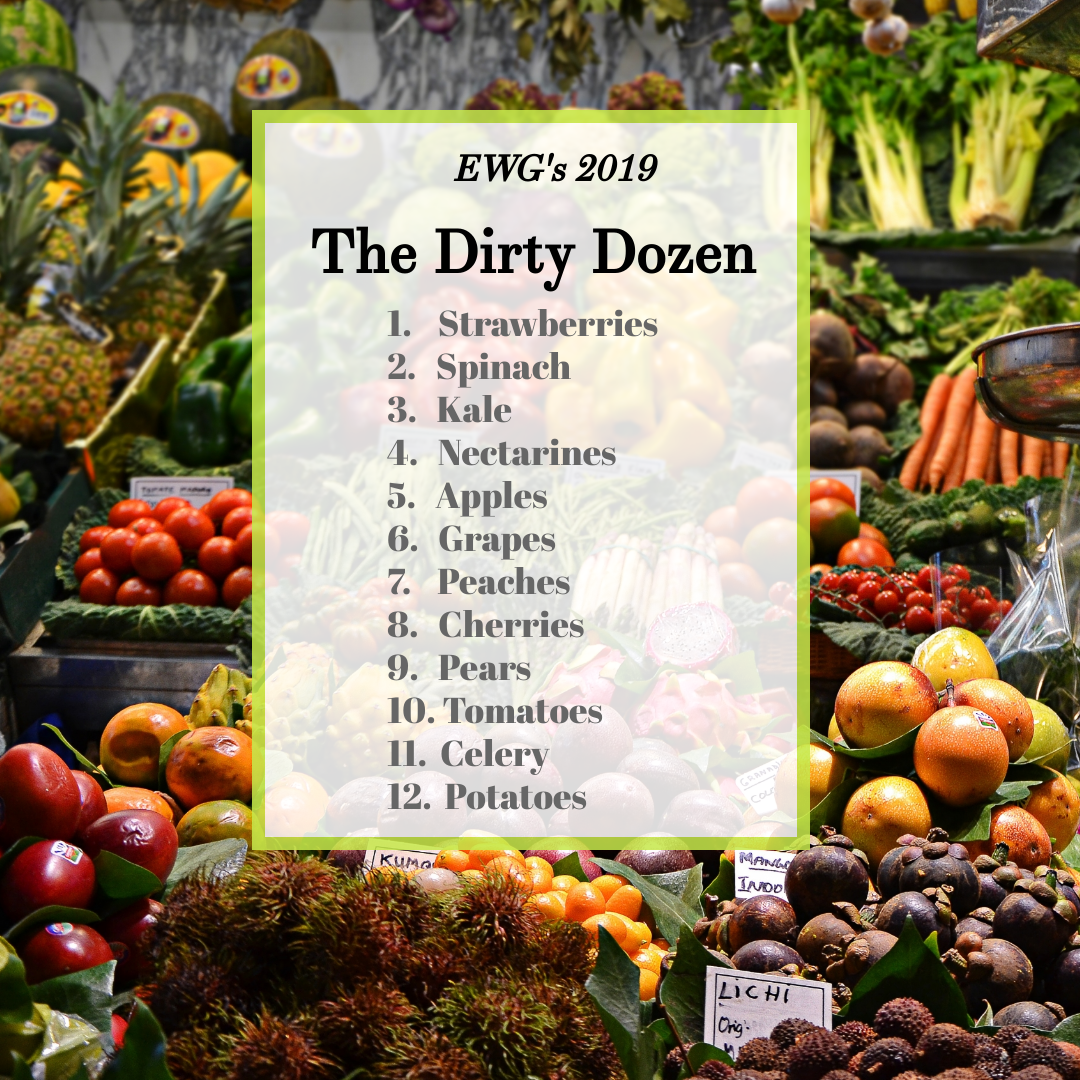Every year, the Environmental Working Group (EWG) updates its ‘Shopper’s Guide to Pesticides in Produce’ and the top 12 pesticide-laden fruits and vegetables, known as the Dirty Dozen. The EWG commonly tests 47 fruits and vegetables, after they have been thoroughly washed and ready to eat. Still , the pesticides are detected in these crops. The EWG also publishes the Clean Fifteen which are those fruit and vegetables with the least pesticide residues.
For 2019, kale is the new entry to the Dirty Dozen list and comes in at number 3, behind strawberries and spinach. Some kale samples had residues from as many as 18 different pesticides.
So what does this mean for the consumer? If you can afford to, eat organically grown produce particularly with babies, infants and young children who are the most vulnerable. The effects of pesticide exposure may not become obvious until their adult life.
Eating organic produce will help reduce the body’s toxic burden caused by pesticides which are endocrine disrupting chemicals (EDCs).This means that they interfere with our natural hormones because they have a strong binding capability to oestrogen or androgen receptors. EDCs can disrupt the synthesis, transport, metabolism and elimination of of our hormones.
